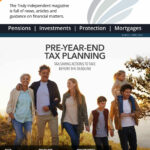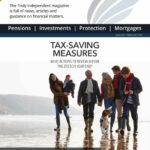The Chancellor of the Exchequer, Rishi Sunak, unveiled unprecedented government aid for the self-employed via the Self-employment Income Support Scheme. There are around five million people who are self-employed and freelance across the UK, and many will be relieved to hear that financial support is on the way to help those impacted by coronavirus.
Lost income
The Self-employment Income Support Scheme (SEISS) will support self-employed individuals (including members of partnerships) who have lost income due to coronavirus (COVID-19). This scheme will allow you to claim a taxable grant worth 80% of your trading profits up to a maximum of £2,500 per month for the next three months. This may be extended if needed.
The Chancellor said it will cover 95% of the self-employed who make most of their money from self-employment.
You can apply if you’re a self-employed individual or member of a partnership, and you:
- Have submitted your Income Tax Self-Assessment tax return for the tax year 2018/19
- Traded in the tax year 2019/20
- Are trading when you apply, or would be except for COVID-19
- Intend to continue to trade in the tax year 2020/21
- Have lost trading/partnership trading profits due to COVID-19
Your self-employed trading profits must also be less than £50,000, and more than half of your income must come from self-employment.
This is determined by at least one of the following conditions being true:
- Having trading profits/partnership trading profits in 2018/19 of less than £50,000, and these profits constitute more than half of your total taxable income
- Having average trading profits in 2016/17, 2017/18 and 2018/19 of less than £50,000, and these profits constitute more than half of your average taxable income in the same period
If you started trading between 2016 and 2019, HM Revenue & Customs (HMRC) will only use those years for which you filed a Self-Assessment tax return.
If you have not submitted your Income Tax Self-Assessment tax return for the year 2018/19, you must do this by 23 April 2020.
HMRC will use data on 2018/19 returns already submitted to identify those eligible and will risk assess any late returns filed before the 23 April 2020 deadline in the usual way.
You’ll receive a taxable grant which will be 80% of the average profits from the tax years (where applicable):
- 2016 to 2017
- 2017 to 2018
- 2018 to 2019
Maximum of £2,500 per month for three months
To work out the average, HMRC will add together the total trading profit for the three tax years (where applicable), then divide by 3 (where applicable), and use this to calculate a monthly amount. It will be up to a maximum of £2,500 per month for three months. The grant will be paid directly into your bank account in one instalment.
You cannot apply for this scheme – HMRC will contact you if you are eligible and invite you to apply online.
Once HMRC has received your claim and you are eligible for the grant, they will contact you to tell you how much you will get and the payment details. If you claim tax credits, you’ll need to include the grant in your claim as income.
Other help you can get
The Government is also providing the following additional help for the self-employed:
- Deferral of Self-Assessment Income Tax payments due in July 2020 and VAT payments due from 20 March 2020 until 30 June 2020
- Grants for businesses that pay little or no business rates
- Increased amounts of Universal Credit
- Business Interruption Loan Scheme
Additional help for the self-employed
Self-employed people can now access Universal credit up to a level of £94.25 per week. This rate is equivalent to Statutory Sick Pay for employees. The Department for Work and Pensions is increasingly providing advance payments for people who are self-isolating, which ‘can be in your account within days’, the Chancellor has announced.
Councils have also been given extra funding to help those most in need, suspending debt collection or helping people pay their rent.
If you are worried about outstanding tax or have financial concerns, ‘Time to Pay’ arrangements can be agrees with HMRC, which involve pushing back the time period in which you have to pay your tax.
IR35 – which required self-employed contractors working under a company structure such as an LLP to either operate as a sole trader or join the client’s payroll – has been suspended until 2021.
Seek Financial Guidance
If you’re still unsure about your different options, speak to one of our independent financial advisers for further assistance.





Follow us